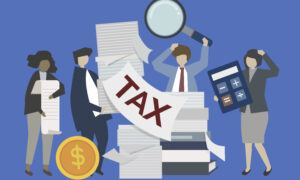
The 2024 Election Primaries are kicking off, and it’s hard to turn on the news without hearing about it. Even so, the primary elections typically have low voter turnout. But did you know they could have a big impact on your finances?
In this article, we’ll explore how the 2024 primaries could affect your budget, and we’ll share some voting tips and resources to simplify the primaries process.
Primary Election Overview
A few states have already held their primaries, and over the next several months, primary elections will be held in all 50 states, Washington D.C., and Puerto Rico. Primary elections help finalize the general election ballot and are an important part of the election process.
- Some states have closed primaries. These are primaries where voting is restricted to individuals who are registered to a particular political party. This means if you live in a state with a closed primary and are registered with one party or the other, you’d vote on a ballot for that party only.
- Other states have open primaries. An open primary is one where any registered voter can vote in the primary. Voters are limited to voting in only one party’s primary, however. But they can choose which ballot they want to vote on.
The Impact of Low Voter Turnout
When you know the big election is coming up a few months down the road, it may not seem worth it to vote in the primaries. But primary elections actually determine 90% of congressional elections, according to the Common Ground Committee.
This is because most congressional districts lean so far towards one party that after the primary, the results are considered determined.
During the 2020 election cycle, it is estimated that only a quarter of those who could vote voted in the presidential primary. And roughly “10% of the population determined 83% of U.S. House of Representatives”.
Primaries are a key piece of the election process. Voting in your primary is a good way to help the candidates you’d like to see in office make the general election ballot. The primaries can also have big implications for your budget and savings.
How Voting Can Affect Your Finances
When you get ready to fill out your ballot in either an upcoming primary election or the general election in November, it’s important to remember that the candidates and issues on your ballot can affect your finances.
1. Minimum Wage
One issue on everyone’s mind right now is how inflation has taken a toll on budgets nationwide. One way this issue may appear on your ballot is through minimum wage initiatives or candidates who support raising the minimum wage.
Understanding the stance of the people you’re voting for might have a direct impact on your household’s bottom line. Be sure to pay attention to the candidates’ stance on minimum wage.
2. School Lunch Programs
Roughly 20 million children in the US receive either free or reduced lunches through school lunch programs at their schools, according to the School Nutrition Association. School meals are funded through federal and state dollars as well as payments by children’s families who pay for lunch.
At the federal level, support for school lunch funding comes from the US Department of Agriculture and is often a part of the farm bill. So it’s important to understand how your federal and state representation feels about the school lunch program and the farm bill.
3. Local and State Taxes
Your ballot will directly impact the taxes you pay. Property taxes is a great example, and actually affect both homeowners and renters.
In many states, you can see your property taxes on your ballot through the different mills you can vote for. The mill rate, also known as the millage rate, is the “tax rate” applied to the assessed value of a property.
Here’s an example: A mill typically equals $1.00 for every $1,000 of home value. So, if you have a home value of $200,000 and 8 mills are assessed, the taxes due would be $1,600 ($200,000 x 8 = 1,600,000 then 1,600,000/1,000 = $1,600)
Think about the mills that are on your ballot, and be sure you’re voting for issues that are important to you while keeping your property tax or rent in mind.
These are just a few of the ways voting, and voting in your primary specifically, can impact your finances.
The leaders you vote for and the issues you support at the local, state, and national levels will impact your financial well-being. It’s important to make your thoughts heard and support the issues and people who’ll be champions for you when and where it matters most!
Commit to Vote and Make a Voting Plan
Voting is essential to the health of democracy in the United States. It also can have a dramatic effect on your finances.
So how can you be prepared to vote in the 2024 primary elections? Make a voting plan using the tips below:
Review Your Voting Information
Before the primary, you’ll want to review your voter information to be sure it is current and up to date. There are two key pieces of information you should review: your voter’s registration and your polling place.
1) Your Voter Registration
You can check your voter registration through vote.org. You can also register to vote if you aren’t registered and request to vote by mail from the website.
When reviewing your registration, be sure your address is current, as this helps determine your polling place. If your address isn’t correct because you’ve recently moved, update your address to be sure your polling location is correct.
2) Your Polling Place
When voting in person, it’s important that you go to the correct polling place.
Polling Place Quick Tips:
- Be sure to review your polling place before both the primary and general elections, as the polling place can be different.
- Review the hours of operation for your polling place to be sure you go vote while they’re open.
- You can’t change your polling place. Your state or local election office assigns your polling place, which is where you must vote. If you try to vote somewhere other than your assigned location, you may have to cast a provisional ballot, and your vote may not count.
Voting rules vary from state to state, so it’s best to check with your county or state website.
Additional Resources
When you’re looking for information on your registration, polling place, or voting rules in your state, or even looking for information on candidates or issues, you want reliable information.
You can always check with our county or state website. And some states mail voter information packets with details about the candidates and polling locations.
Here are a few other reliable resources you can use to be an informed voter:
- www.vote.org lets you check your voter registration, register to vote, and sign up to vote by mail. It also has information about election dates, registration deadlines, and rules for each state.
- ballotpedia.org lets you plug in your address and learn about both candidates and initiatives that will be on your ballot. This can help you figure out how you want to vote.
Remember, voting is a right and gives you a say in the democratic process in America. It can directly affect your finances and your life. Commit to voting, do your research, and make your voice heard!


